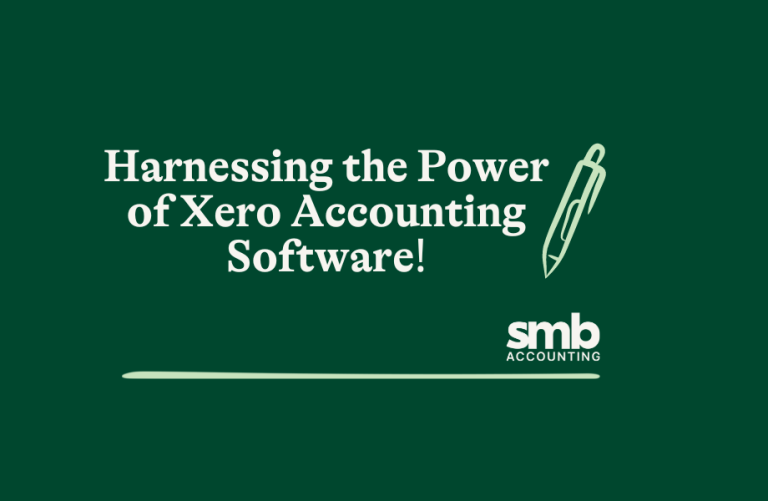Filing taxes is a crucial task for any small business, but it can often feel complicated and overwhelming. Understanding how to handle tax filing efficiently can save your business time and money, and help you avoid costly mistakes. With the right approach, tax season doesn’t have to be stressful.
Many small business owners find tax filing confusing because of the various rules and regulations that must be followed. Different types of income, deductible expenses, and compliance requirements can add to the complexity. However, by breaking down the process into clear steps, you can make it much more manageable.
In this guide, we’ll explore how to make tax filing simpler for your small business. We’ll start by covering the basics of tax filing and then provide essential tips that can help streamline the process. We’ll also discuss how accounting software like Xero, MYOB, and QuickBooks can make tax filing easier and more efficient. Finally, we’ll highlight some common mistakes to avoid to ensure your tax filing goes smoothly. By following these steps, you can take control of your business’s tax responsibilities and focus more on growing your enterprise.
Understanding the Basics of Tax Filing for Small Businesses
Tax filing for small businesses involves reporting your business income and expenses to the Australian Taxation Office (ATO). The goal is to determine how much tax you owe or whether you are entitled to a refund. Knowing the basics can help you navigate the process with ease and confidence.
First, identify your business structure. Whether you’re a sole trader, partnership, company, or trust, the structure affects how you file your taxes. Each structure has different reporting requirements and tax rates. For example, sole traders report their business income on their individual tax return, while companies need to lodge a separate company tax return.
Next, keep track of your business income. This includes money earned from sales, services provided, and any other business activities. Accurate record-keeping is essential for ensuring that you report all income correctly. Using an invoicing system can help you stay organised.
Understanding deductions is also crucial. Deductions reduce your taxable income, lowering the amount of tax you owe. Common deductions for small businesses include operating expenses, office supplies, employee wages, and business insurance. Keep detailed records of all expenses and ensure they are directly related to running your business.
By understanding these basics, you can make the tax filing process less daunting and more efficient.
Essential Tax Filing Tips for Small Businesses
Filing taxes doesn’t have to be stressful. Here are some essential tips to help you streamline the process and ensure accuracy.
- Organise Your Records: Keep all financial documents, such as receipts, invoices, and bank statements, organised throughout the year. Use folders or digital storage solutions to ensure everything is easily accessible.
- Use Accounting Software: Tools like Xero, MYOB, and QuickBooks can simplify bookkeeping and tax filing. These programs help track income, expenses, and generate reports needed for tax purposes. They also integrate with ATO’s online services, making lodgement easier.
- Understand Key Dates: Make sure you know the important tax dates for lodgement and payment. Missing deadlines can result in penalties. Mark these dates on your calendar or set reminders to stay on track.
- Claim All Eligible Deductions: Be aware of all the deductions you’re entitled to claim. This includes home office expenses, vehicle expenses, and depreciation of assets. Properly claiming deductions can significantly reduce your taxable income.
- Hire a Professional: If tax filing feels overwhelming, consider hiring an accountant. They can provide expert advice, ensure your taxes are filed correctly, and help you maximise your deductions.
- Regularly Reconcile Accounts: Reconcile your bank accounts and financial records regularly. This helps catch any errors and ensures your records are accurate when it’s time to file taxes.
By following these tips, you can make tax filing more manageable and reduce the risk of mistakes. Staying organised and utilising available resources can make a significant difference in your tax filing experience.
Using Accounting Software to Streamline Tax Filing
Accounting software can significantly simplify the tax filing process for small businesses. Tools like Xero, MYOB, and QuickBooks offer various features that aid in effortless financial management.
One of the most significant benefits of using accounting software is automation. These programs can automatically track your income and expenses, categorise transactions, and generate essential financial reports. Automation reduces the need for manual data entry, saving you time and minimising errors.
In addition to tracking, accounting software helps you stay organised. Digital storage for all your financial documents means you can easily access invoices, receipts, and statements whenever necessary. Many of these tools also integrate with your bank accounts, ensuring that your records are always up-to-date.
Furthermore, accounting software can assist with compliance. These programs often come with built-in tax preparation features that help you adhere to ATO guidelines. For instance, they can calculate your GST obligations, generate BAS reports, and even facilitate online lodgement.
Using software like Xero, MYOB, or QuickBooks allows you to streamline your tax filing and focus more on growing your business. By leveraging these tools, you can ensure accuracy and efficiency in your tax-related tasks.
Common Tax Filing Mistakes to Avoid
Even with the best intentions, small business owners can make mistakes when filing taxes. Avoiding common errors can save you from penalties and financial stress. Here are some mistakes to watch out for:
- Skipping Deadlines: Missing tax deadlines can result in fines and interest charges. Mark important dates on your calendar and set reminders to ensure timely submissions.
- Inaccurate Record-Keeping: Failing to keep accurate and organised records can lead to errors in your tax return. Regularly update your financial records and reconcile them with your bank statements to maintain accuracy.
- Underestimating Taxable Income: Ensure you report all sources of business income. Underreporting can trigger audits and penalties. Use accounting software to track every transaction.
- Overlooking Deductions: Not claiming all eligible deductions can mean paying more tax than necessary. Familiarise yourself with deductible expenses and keep detailed records to support your claims.
- Mixing Personal and Business Expenses: Avoid combining personal and business expenses as this complicates your tax return and can lead to disallowed deductions. Maintain separate accounts for business transactions.
- Ignoring Professional Help: Trying to manage taxes without expert advice can be risky. An accountant can provide guidance, ensure compliance, and help maximise your tax benefits.
By being aware of these common mistakes, you can file your taxes more accurately and efficiently. Ensuring proper record-keeping, understanding deductions, and seeking professional help can significantly improve your tax filing experience.
Conclusion
Tax filing for small businesses doesn’t need to be a daunting task. By understanding the basics, following essential tips, and leveraging accounting software, you can streamline the process and avoid common pitfalls. Keeping accurate records, staying organised, and being aware of key dates can make a significant difference. Remember, avoiding mistakes like missing deadlines and mixing expenses will save you headaches and possible penalties.
If you’re looking for expert assistance to make tax filing easier, SMB Accounting is here to help. Our tax consultants provide comprehensive services with expertise in Xero, MYOB, and QuickBooks, ensuring your tax filing is accurate and stress-free. Reach out to SMB Accounting today and let us take the hassle out of your tax season.




